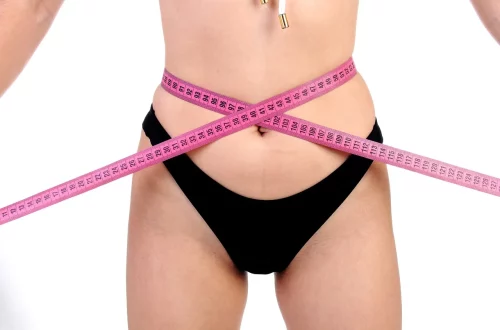
Best Running Shoes for Achilles Problems: Top Picks for Comfort and Support
Finding the right running shoes is crucial for anyone who enjoys running, especially for those dealing with specific foot or ankle issues. Among these concerns, Achilles tendon problems are particularly common and can significantly impact a runner’s ability to train effectively. This condition often results in discomfort, pain, and limitations in movement, making it imperative to choose footwear that provides the necessary support and cushioning.
The Achilles tendon, which connects the calf muscles to the heel bone, can be subjected to strain during running, leading to inflammation or injury. The right shoes can alleviate pressure on this tendon, helping to prevent further complications while enhancing overall comfort during runs. With a plethora of options available, it can be overwhelming for runners to determine which shoes are best suited for their needs.
When selecting running footwear, features such as cushioning, arch support, and heel height play vital roles in mitigating Achilles-related discomfort. Additionally, the fit and flexibility of the shoe can influence how well it accommodates individual foot shapes and running styles. As we delve into the world of running shoes tailored for those with Achilles problems, understanding these elements will empower runners to make informed choices that align with their specific requirements.
Key Features to Look for in Running Shoes
When seeking running shoes suitable for Achilles tendon issues, several key features should be prioritized. First and foremost, cushioning is essential. Shoes with adequate cushioning can absorb shock and reduce the impact on the Achilles tendon, decreasing the risk of pain and injury. Look for models that provide a balance between plush comfort and responsiveness, ensuring that your feet feel supported without feeling overly soft.
Arch support is another critical feature to consider. Runners with flat feet or high arches may experience different levels of strain on their Achilles tendon. Therefore, it’s essential to choose shoes that offer appropriate arch support for your foot type. Those with flat feet should consider stability shoes that provide extra support, while runners with high arches may benefit from neutral shoes with more cushioning.
Heel height and drop are also important factors. A lower heel-to-toe drop can promote a more natural running gait, which can be beneficial for those with Achilles issues. However, runners should be cautious when transitioning to shoes with a lower drop, as this can require an adjustment period. It’s often recommended to gradually increase your mileage in new shoes to give your body time to adapt.
Fit and flexibility should not be overlooked. Shoes that are too tight can lead to discomfort, while overly loose shoes can result in instability. Additionally, flexibility in the forefoot area allows for a more natural stride, reducing strain on the Achilles tendon. Always try on shoes at the end of the day when your feet are slightly swollen to ensure a proper fit.
Lastly, it’s wise to consider the materials used in the shoe’s construction. Lightweight, breathable materials can enhance comfort, especially during long runs. Look for shoes that utilize moisture-wicking fabrics to keep your feet dry and prevent blisters, which can exacerbate any existing discomfort.
Top Running Shoe Recommendations for Achilles Tendon Issues
Several running shoe brands have developed models specifically designed to address Achilles tendon problems. Among the leading options, the ASICS Gel-Nimbus series stands out for its exceptional cushioning and support. With a gel cushioning system that absorbs shock effectively, these shoes provide a soft landing with each stride, crucial for runners experiencing Achilles discomfort.
Another excellent choice is the Brooks Ghost series, known for its balanced and smooth ride. The Ghost shoes come with a cushioned midsole that offers both comfort and responsiveness, making them ideal for longer runs. Additionally, the shoe’s flexible design allows for a natural range of motion, which is beneficial for those recovering from Achilles issues.
For runners seeking a more stability-oriented option, the New Balance Fresh Foam 860 series is worth considering. These shoes are designed to provide support without sacrificing comfort, making them a solid choice for those with overpronation tendencies. The Fresh Foam technology ensures a plush feel underfoot, helping to alleviate pressure on the Achilles tendon.
Nike’s Zoom Pegasus series also deserves mention, as it combines responsive cushioning with a lightweight build. This model is particularly popular among runners who appreciate a more dynamic feel while still requiring ample support. The Zoom Air units in the midsole provide excellent energy return, making each run feel more efficient.
Lastly, the Saucony Triumph series features ample cushioning and a comfortable fit, perfect for those looking to minimize impact on the Achilles tendon. The PWRRUN+ midsole technology offers a plush, responsive ride, making it an excellent choice for longer distances. Runners who prioritize comfort will find the Triumph series to be a reliable option.
Tips for Managing Achilles Tendon Pain While Running
In addition to selecting the right running shoes, implementing effective management strategies can help alleviate Achilles tendon pain. First and foremost, consider incorporating stretching and strengthening exercises into your routine. Focus on the calf muscles, as tight calves can contribute to Achilles discomfort. Simple stretches, such as calf raises and toe stretches, can improve flexibility and reduce strain on the tendon.
Cross-training is another beneficial approach. Engaging in low-impact activities such as swimming or cycling can help maintain fitness levels while giving your Achilles tendon a break from the repetitive stress of running. This can aid in recovery and prevent further injuries.
Listen to your body and be mindful of any pain signals. If you experience discomfort while running, it’s crucial to address it rather than pushing through the pain. Consider modifying your training schedule, reducing mileage, or allowing additional rest days to facilitate healing.
Incorporating proper warm-up and cool-down routines is essential as well. A good warm-up prepares your muscles for the demands of running, while a cool-down helps with recovery. Dynamic stretches before running and static stretches afterward can help keep the Achilles tendon flexible and reduce the risk of injury.
Finally, consult a healthcare professional if you experience persistent pain. A physical therapist can provide tailored exercises and interventions, ensuring a safe return to running. Remember, prioritizing your health is paramount, and seeking professional guidance can lead to effective management of Achilles tendon issues.
**Disclaimer:** This article is for informational purposes only and does not constitute medical advice. Always consult a healthcare professional for medical concerns or prior to starting any new exercise program.




